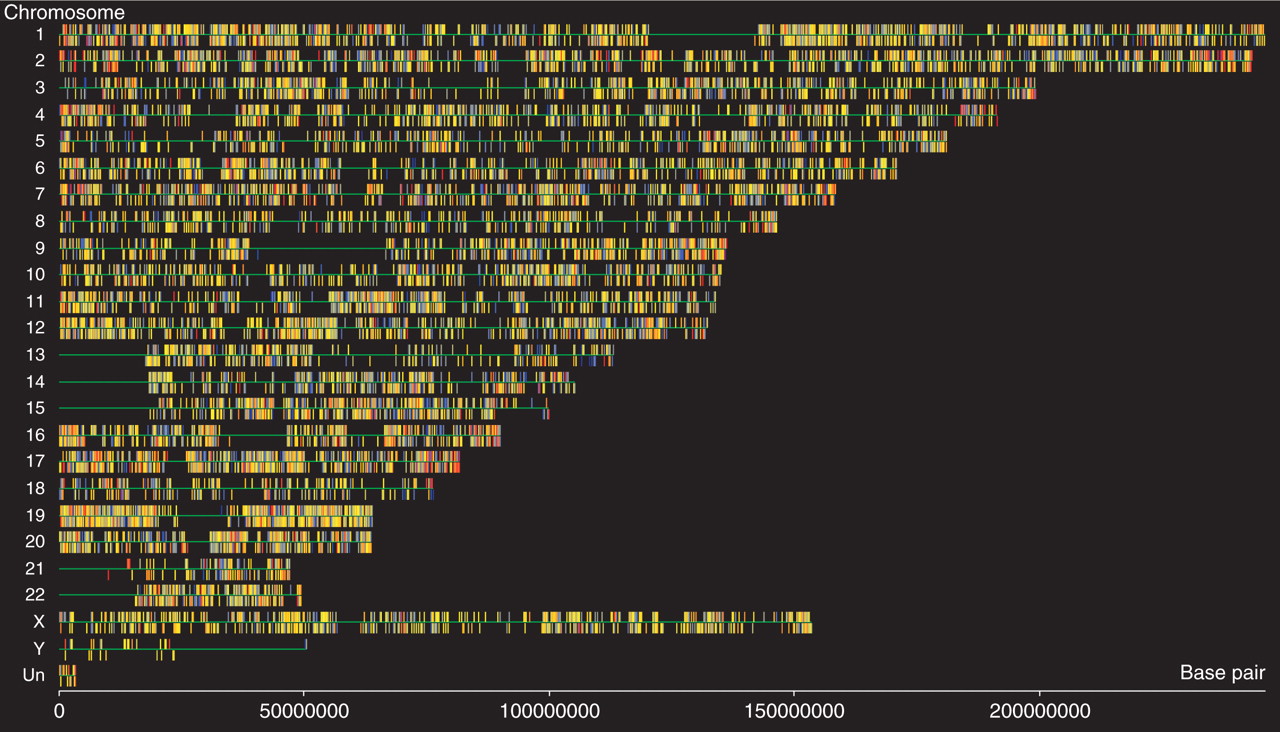Analysis of Epigenetic Changes May Lead to Potential Biomarker for Cancer
03-01-2007
Professor Rebecca W. Doerge, Purdue University Professor of Statistics and Agronomy, and former students have been working with Orion Genomics, St. Louis, Missouri, to employ statistical methods for the analysis of epigenetic changes, heritable changes that are not due to DNA sequence differences.




R. Doerge, D. Cao, R. Kendall, and J. Stevens
Figure 2 in Carcinogenesis 27(12):2409-2423. 2006. Click on the image to see a full size image.
In a publication titled, "Comprehensive DNA Methylation profiling in a human cancer genome identifies novel epigenetic targets," (Carcinogenesis 27(12):2409-2423. 2006), Doerge and former students Rebecca Kendall, M.S. 2006; John Stevens, Ph.D. 2005; and Dachuang Cao, Ph.D. 2004, along with their scientific collaborators, employed a unique microarray platform for cytosine methylation profiling to infer the DNA methylation landscape of the human genome under normal and diseased conditions. Using statistical analyses, and independent verification, the molecular differences between diseased (i.e., cancer) tissue and normal tissue were identified and located to specific targets in the human genome. These targets display statistically significant differential methylation when diseased and normal tissues are compared, suggesting they may be useful as potential biomarkers for a variety of cancer types.
"Epigenomics is the study of heritable changes in genome function that occur in the absence of changes to the DNA sequence itself, and is considered by many to be the second-code of instruction that affects gene activity," states Professor Doerge. "Although, this change in behavior of DNA is heritable, it is not well understood by the scientific and medical communities. To date it has been well established that some genes have methyl (chemical) groups attached to their DNA complex, while others do not. A change in methylation status may modify the behavior of a gene, and as a result it may modify the proteins that a gene is responsible for producing. These methylation changes have been linked to known cancer events."
Professor Doerge is the Director of the Statistical Bioinformatics Center (SBC) at Purdue University. The center was initiated in 2005, and involves all faculty and students in the Department of Statistics engaged in Bioinformatics research. They are supported by both private and federal (National Science Foundation (NSF), United States Department of Agriculture (USDA), National Institute of Health (NIH)) funds for education, research, and outreach activities.
"Our goal and mission is to remain on the cutting-edge of statistical sciences as applied to Bioinformatics so that our graduates can lead the way to the future," states Professor Doerge.
